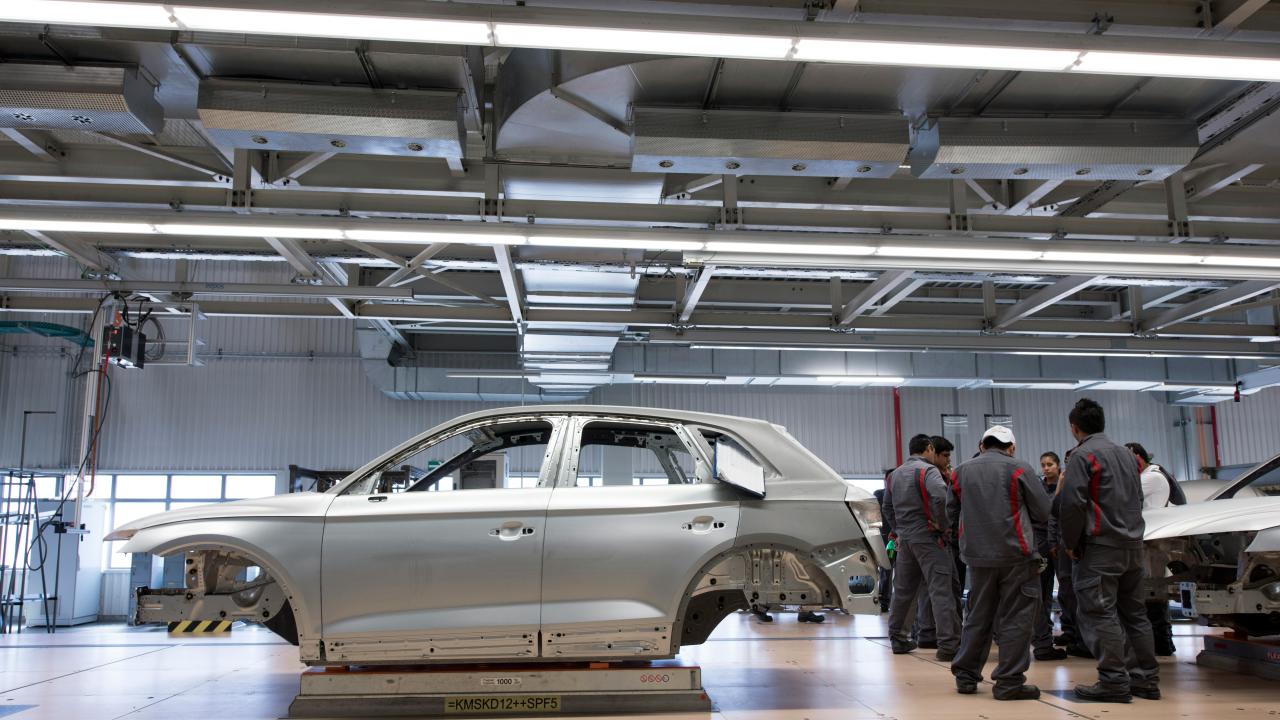
Last year the indicator grew by 6%, with Mexico being the nation with which the US economy was most integrated in terms of shared production.
Mexico's automotive surplus with the United States broke a record in 2024, reaching $137.813 billion, 6% higher than in 2023.
According to data from the Department of Commerce, in bilateral trade, Mexican exports grew 4.9% to $181.397 billion and U.S. exports rose 1.5% to $43.584 billion.
Following these results, US President Donald Trump said on Friday that he could impose tariffs on automobile imports starting April 2, the day after senior officials in his cabinet presented a series of reviews and delivered policy recommendations with possible tariff actions, as part of a presidential order.
In 2024, Mexico was ranked as the country with which the United States had its largest trade deficit in the automotive industry, although it was also the nation with which the U.S. economy was most integrated in terms of shared production.
The trade balance in favor of Mexico with its northern neighbor has more than doubled in the last decade, from $63.473 billion in 2014 to $137.813 billion in 2024.
In contrast, the United States recorded a surplus of $7.139 billion with respect to Canada in the same relationship, with U.S. exports of $63.835 billion and Canadian exports of $56.696 billion in their bilateral automotive trade in 2024.
According to the Department of Commerce, the average manufactured product from Mexico contains 40% U.S. content, and the average manufactured product from Canada contains 25% U.S. content.
Trump made the remark about auto tariffs in response to a reporter’s question about when he might follow through on an earlier threat to impose tariffs on cars. “Maybe around April 2,” he replied, during an executive order signing ceremony in the Oval Office.
The next two largest U.S. deficits in auto trade are among Asian countries, with large flows to the U.S. market and marginal shipments to that pair of nations.
In this regard, the United States had a deficit of 53.004 billion dollars with Japan, exporting products worth 2.356 billion and registering imports worth 55.360 billion.
With South Korea, the deficit was 46.807 billion dollars, with exports of 2.650 billion and purchases of 49.457 billion.
Tariff war
Since the start of his second term on January 20, Donald Trump has introduced additional 10% tariffs on Chinese goods and has ensured that steel and aluminum entering the United States will soon be taxed at a rate of 25 percent.
Last Thursday, he also promised to impose on US trading allies the same tariffs that they apply to American products.
Analysts have warned that Trump's use of tariffs as a weapon to get other countries to make concessions on everything from trade to immigration to drug trafficking could upend global trade rules.
Trump has signed executive orders authorizing the imposition of high tariffs if Mexico, Canada and China do not comply with certain conditions related to migration, drug trafficking (especially fentanyl) and national security. After partial agreements, Trump gave his two neighboring countries a one-month deadline, but not China, to whom he applied an additional 10% tariff starting this Tuesday.
Brands on alert
After President Trump raised the tone of his tariff announcements, brand executives have expressed that they are able to reduce their assembly in Mexico and Canada and increase it in the United States if the tariffs are implemented.
“We have the capacity in the U.S. to transfer some of that. We also sell trucks globally, so we can look at where international markets come from. There are things we can do to minimize the impact if tariffs are imposed on Canada or Mexico,” Mary Barra, president of General Motors, told analysts on January 29.
"If high tariffs are imposed, we will have to be ready, and we may be able to move production of these models elsewhere," said Makoto Uchida, CEO of Nissan, on Thursday, February 13.
However, brands continue to lobby for free trade. Last Thursday, Matt Blunt, president of the American Automotive Policy Council (AAPC), said in a statement that Ford, GM and Stellantis have requested that vehicles and auto parts that meet USMCA requirements should not be subject to additional tariffs proposed by Trump.
Brands face tariffs
General Motors. On January 29, Mary Barra, the company's president, said that it has additional capacity in the United States to increase its local production in case tariffs are imposed on cars exported from Mexico and Canada.
Nissan. On Thursday, February 13, Makoto Uchida, the company's general manager, said that if high tariffs are imposed, "we may be able to move production elsewhere."
Ford CEO Jim Farley said Wednesday that the company is already looking at areas where it can build up inventory to prepare for potential 25% tariffs on imports from Mexico and Canada.
Stellantis. On Nov. 22, two months before Trump was inaugurated, Chris Feuell, head of Stellantis NV’s Ram pickup truck brand, said the company was exploring changes to its factory and supplier networks if new policies disrupt supply chains.









